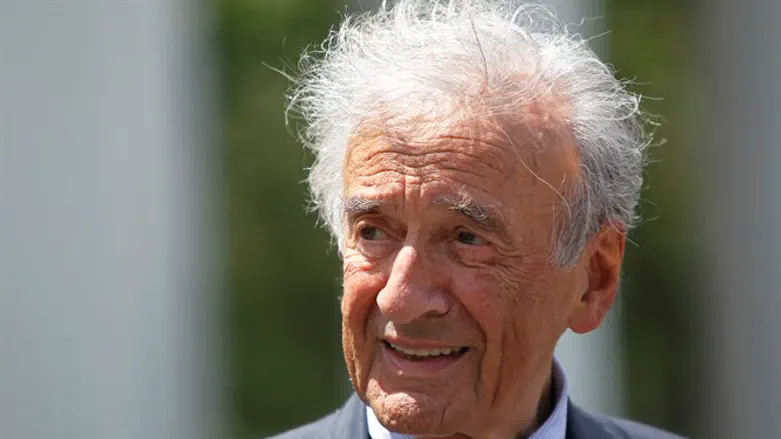
Bipartisan legislation named for the late Elie Wiesel that aims to improve the US response to emerging or potential genocides is expected to be signed into law by President Donald Trump.
The Elie Wiesel Genocide and Atrocities Prevention Act passed final votes last week in the Senate and the House of Representatives, JTA reported on Sunday.
The act ensures that the official policy of the United States deems the prevention of genocide and other crimes a matter of national security interest.
It also would establish an interagency Mass Atrocities Task Force and encourage the director of national intelligence to include information on atrocities in the annual crime report to Congress. It also enables training for U.S. Foreign Service officers on detecting early signs of atrocities.
The measure was introduced in June 2017 by Reps. Joe Crowley (D-NY) and Ann Wagner (R-MO), and in the Senate by Sens. Ben Cardin (D-MD) and Todd Young (R-IN), both members of the Senate Foreign Relations Committee.
The final bill passed in the House on Friday, after previously passing in the chamber on July 17 in a vote of 406-5 with 117 cosponsors. The Senate approved the legislation last week, with 34 cosponsors.
Wiesel, born in northern Romania in 1928, survived Auschwitz and devoted his life to keeping memories of the Nazi genocide of World War II from fading away.
He settled in the United States after the war and helped challenge the widely held assumption in Romania, following decades of communist rule, that the Germans alone were responsible for the Holocaust.
Wiesel was awarded the Nobel Peace Prize in 1986, and later he and his wife founded The Elie Wiesel Foundation for Humanity with a mission to "combat indifference, intolerance and injustice through international dialogue and youth-focused programs.". He passed away in 2016 at the age of 87.
In September of 2016, the US House of Representatives unanimously approved a resolution honoring the life and work of Wiesel.
The resolution “reaffirms Elie Wiesel’s efforts to preserve the memory of those who perished and prevent the recurrence of another Holocaust, to combat hate and intolerance in any manifestation, and to never forget and also learn from the lessons of history.”
Last year, New York renamed the southwest corner of 84th Street and Central Park West "Elie Wiesel Way".